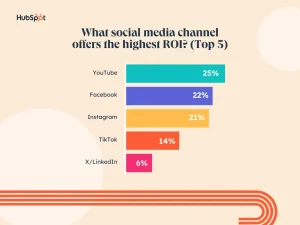
Let’s be honest. For most website owners, web hosting security means strong passwords, SSL certificates, and maybe a good firewall. It’s about keeping the barbarians at the gate—today’s barbarians. But a new kind of storm is gathering on the digital horizon, one that could render our current defenses as effective as a paper shield.
We’re talking about quantum computing. And while it sounds like science fiction, the threat to your web hosting security is very, very real. Here’s the deal: the same power that could solve problems in minutes that would take today’s supercomputers millennia also has the potential to shatter the cryptographic locks that keep our entire online world safe.
Why Your Current Web Hosting Security Isn’t Ready
Think of your data’s security like a vault. Right now, that vault is protected by a complex combination lock—algorithms like RSA and ECC (Elliptic Curve Cryptography). These are what encrypt data traveling between a visitor’s browser and your server (that’s SSL/TLS), and what secure your stored data.
Well, a quantum computer, specifically through an algorithm called Shor’s algorithm, is like a master locksmith with supernatural hearing. It can listen to the tiny clicks of the lock’s mechanism and deduce the combination with terrifying efficiency. What takes a classical computer billions of years could take a sufficiently powerful quantum machine hours or days.
This isn’t just about someone reading your blog posts. It’s about:
- Stolen Customer Data: Personal information, payment details—all decrypted.
- Website Hijacking: An attacker forging a digital signature and taking over your site completely.
- Breached Admin Panels: Your hosting account, laid bare.
The scary part? There’s a threat called “Harvest Now, Decrypt Later.” Adversaries are already collecting and storing encrypted data today, fully expecting to decrypt it once a quantum computer is available. So, data you think is secure right now might already be in a queue for future exposure.
The Quantum-Resistant Hosting Checklist: What to Look For
Okay, so the quantum threat is looming. But you can’t just throw your hands up. The good news is that the smart minds in cryptography are already working on solutions, known as Post-Quantum Cryptography (PQC) or Quantum-Resistant Cryptography. These are new, complex mathematical problems that are believed to be hard for both classical and quantum computers to crack.
Future-proofing your web hosting means starting to ask questions now. When evaluating a host, think about their roadmap. Here’s what a forward-thinking security posture looks like.
1. Commitment to PQC Standards
The U.S. National Institute of Standards and Technology (NIST) has been running a multi-year process to select and standardize quantum-resistant algorithms. This is the gold standard. A host that’s serious about security will have a public plan for integrating these NIST-approved algorithms as they become finalized and supported by major software.
2. Hybrid Cryptographic Solutions
The transition won’t happen overnight. The most practical approach right now is a hybrid one. This means using both traditional RSA/ECC encryption and a new post-quantum algorithm simultaneously.
It’s like putting two locks on your vault—one old, one new. A quantum computer would have to break both at the same time, which adds a massive layer of security during this transitional period. Ask potential hosts if they support or are planning to support hybrid TLS certificates for their servers.
3. Robust Key Management Practices
Encryption is only as strong as your keys. Quantum readiness isn’t just about the algorithm; it’s about the entire lifecycle of your cryptographic keys. A secure host should offer, or be planning to offer:
- Hardware Security Modules (HSMs) for generating and storing PQC keys.
- Automated and frequent key rotation policies.
- Secure, quantum-random number generation for key creation.
Action Plan: Steps You Can Take Today
You don’t need to be a cryptographer to start building resilience. Honestly, it’s more about mindset and preparation than immediate, drastic action.
1. Conduct a Data Sensitivity Audit. What data do you store that needs to be protected for the long term (10+ years)? Customer databases, intellectual property, financial records? Identifying this “crown jewels” data helps you prioritize your efforts.
2. Talk to Your Hosting Provider. Seriously, just ask. Send a support ticket or ask your account manager: “What is your strategy for post-quantum cryptography?” Their answer will tell you everything. A vague or non-existent answer is a red flag. A detailed, informed response is a very good sign.
3. Stay Informed and Agile. The field of PQC is still evolving. Follow security blogs, keep an eye on NIST announcements, and choose a hosting partner known for agility and rapid updates. You want a host that can pivot as the technology solidifies.
Here’s a quick snapshot of the shift we’re facing:
| Current Security Focus | Quantum-Era Security Focus |
| RSA & ECC Encryption | Lattice-based & Code-based Cryptography |
| Standard SSL/TLS Certificates | Hybrid or Pure PQC TLS Certificates |
| Software-based Key Generation | Hardware Security Modules (HSMs) |
| Reacting to Present Threats | Preparing for Future “Harvest Now” Attacks |
The Bottom Line: It’s About Building a Moat
Securing your web hosting against quantum threats isn’t a single product you can buy. It’s a process. It’s a commitment to building a deeper, wider moat around your digital castle while the neighboring kingdoms are still worried about their front gate.
The transition to a quantum-resistant internet is inevitable. It will be a collective effort between hardware manufacturers, software developers, hosting providers, and us—the website owners. The question isn’t if you’ll need to adapt, but when. And starting that conversation now, both internally and with your hosting partner, is perhaps the most secure step you can take.
After all, the best time to fix the roof is when the sun is still shining.







